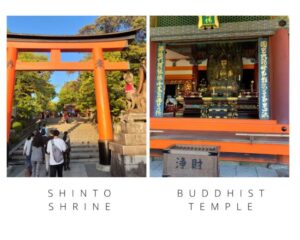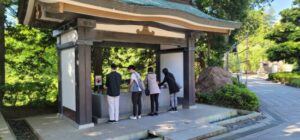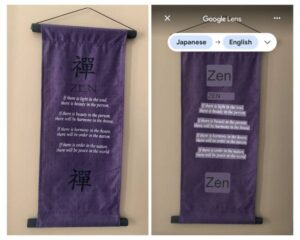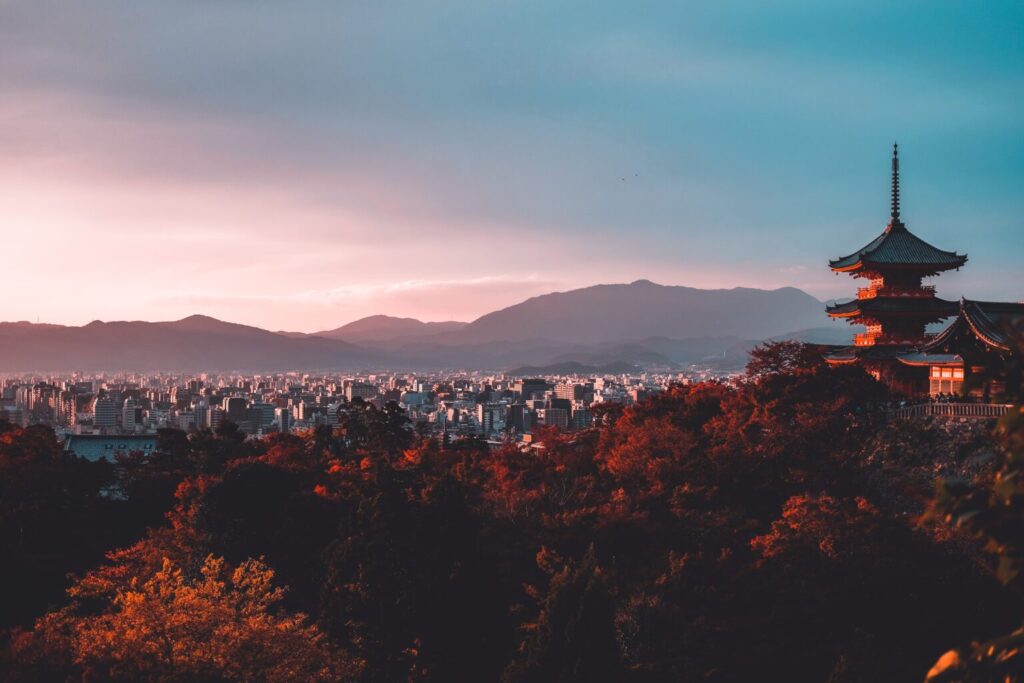Here’s my second instalment on wisdom I’ve been reflecting on from our Japan trip:
In Part 1, I shared how the Japanese people are calm and polite. There’s a deep sense of order and efficiency that creates great results.
People don’t just follow the rules, there’s a deep respect for what’s “right and wrong” in their society that works well and everyone benefits or so it appears.
It reminded me of my own family growing up with Asian roots.
We all want peace and harmony that I experienced in Japan and felt growing up.
There’s been something mysterious about Japan – their high advances mixed with unexpected high suicide I talked about in Part 1.
I noticed 2 things that can create blocks to our spiritual growth vital for our lives that exists among Japanese people:
1. Emotional suppression and
2. Conflict avoidance
There was a pattern I began noticing when I got onto the spiritual path.
Those who suffered through a major trauma as opposed to avoiding it seemed to be the same ones who had spiritually awakened.
I began wondering “do people have to suffer to awaken to their Spirit”?
It seemed like avoiding pain and not processing your true emotions meant you were missing an opportunity to grow your soul.
Eckhart Tolle, author of the Power of Now, experienced a profound transformation that led to his awakening and pulled him out of a period of deep despair and suicidal thoughts.
Tolle’s major thought, which became the foundation of his teachings, revolves around the concept of living in the present moment and finding inner peace and fulfillment through a deep connection to the present.
Being present is one of the foundational teachings of Zen Buddhism that also originated from Siddhartha Gautama (“the Buddha”) more than 2,500 years ago in India.
It was through his deep suffering after leaving his palace and giving up all his worldly goods that he found enlightenment.
A Way of Life in Japan – Buddhism and Shintoism
In simplest terms, temples are Buddhist, while shrines are Shinto. Temples have the large incense burners and Buddhist statues, while Shrines have the distinctive Torii gates.
Marriages and births are celebrated at Shines while funerals are held at Buddhist temples.

Shintoism is Japan’s indigenous spirituality. It believes that every living thing in nature (e.g. trees, rocks, flowers, animals – even sounds) contains kami or gods.
Shinto means “the way” and “spirit” and focuses on the importance of purity, harmony, respect for nature, family, and subordination of the individual before the group.
Zen Buddhism evolved from China as a separate form of Buddhism that emphasized direct experience, meditation, and insight into one’s true nature.
Zen focuses on simplicity, living in the present and that enlightenment is achieved through the profound realization that one is already an enlightened being.
About 80% of the Japanese population follow the Shinto and Buddhism as a way of life as opposed to a religion.
At many Shrines you will find areas where you can “purify yourself” including “evil spirits” by pouring clean water over your hands.

The temple below in Kyoto had pure water filtered straight from the mountains!
Clean everything is the norm in Japan.

Applying Spirituality to Life
This zen wisdom hangs on my bedroom wall. It made perfect sense until I went to Japan, and took a deeper look.
If there is light in the soul,
There will be beauty in the person.
If there is beauty in the person,
There will be harmony in the house.
If there is harmony in the house,
There will be order in the nation.
If there is order in the nation,
There will be peace in the world.
Google translate’s camera feature was super handy in Japan for instantly translating the language right on your phone.

We all have a light of God within us, which guides us in ways that can grow our soul.
Not everyone is aware of this divine light within.
Your beauty (character) evolves as you co-create with your divine light to create what is unique to you.
Does having Beauty guarantee harmony? No.
There are plenty of awakened beautiful souls who continue to suffer and some choose to do harm.
What if your style of Beauty doesn’t fit into the rules you grew up with?
Harmony also does not necessary mean order. In fact, orderliness can lead to a need to control.
Where is the space for authenticity, our inevitable differences, and unconditional love?
“If …. Then” thinking with any philosophy can be misleading because humanity isn’t black and white.
I grew up in a family that thought in a very logical and linear way.
It felt like common sense and the right way to approach life because there was harmony, respect and hard work that resulted in “achievement” in terms of jobs, health, financial stability and family.
I thought there was a right way and a wrong way instead of realizing there are many different ways that may be right for one person and wrong for another.
Unless we can agree on how we express our shared values like compassion, empathy, and kindness, how can we ever allow for our differences?
If harmony is achieved only by avoiding conflict and suppressing emotions, there’s a hidden danger.
The Paradox of Allowing for Conflict (Differences), but not War (Destruction)
Have you ever wondered why the Japanese were renowned for being devastatingly cruel during WW2 yet at the same time we know them to be calm, reserved & polite?
I wasn’t aware of the volume of loss that the Japanese military were responsible for massacring up to ~30M people (mostly the Chinese – my ancestry) during the war that happened less than a century ago.
The atrocities here none of us want to know about – it’s so hard to digest.
You’d rather die than get captured by the Japanese.
The Japanese Express Emotion Through the Arts
I watched the Japanese anime called Grave of the Fireflies recently based on the 1967 semi-autobiographical account of a teenage boy orphaned with his younger sister during the bombing of Kobe in 1945.
Japanese animated films capture emotional expression on a much deeper scale than the West.
I was a mess. Seeing children devastated by war we need to really see.
We are not looking just for peace, calm and order.
Our shared spiritual values of compassion, mercy, non-judgment and empathy get developed at the soul level when we learn how to express ourselves emotionally and work through our conflicts.
It is not a coincidence that the majority of people who discover the power of their Spirit have experienced some kind of major trauma in their lives that moved them to awaken.
If you suppress your emotions or avoid conflict when facing a life-altering disease, a lost loved one or any other major life crisis, you’ll create a spiritual problem because your soul during these times is being called to grow.
When human nature takes on the form of “my way or the highway”, the need to control kicks in not only against other people, but also against yourself.
It’s where the destructive power of judgment shows up with a sense of superiority to condemn another and you no longer see another as a fellow soul.
Gathered together in an entire country can foster genocide.
It’s a hidden danger in all of us that divides instead of connects during inevitable conflicts.
Expressing our emotions in healthy ways and facing conflict to resolve our differences in our individual lives are both keys to our spiritual growth.
Zero tolerance for anything means no mercy.
Right and wrong get enforced where freedom is lost by the ones who have power (money and authority) without the spiritual maturity we all need.
It’s been playing out since the beginning of time erupting in wars outside because of the inner war of judgment in our minds justifying why “the other” is wrong.
There’s an inner divine love – a fragment of the Creator we each must find on this journey where we align with our Spirit and continue to grow our soul.
It’s here that we will collectively awaken to a higher collective consciousness that no longer suffers the devastation of war.
Ask yourself – where am I suppressing emotions that need to be expressed and are there conflicts I’m avoiding I could navigate through to grow my soul?
